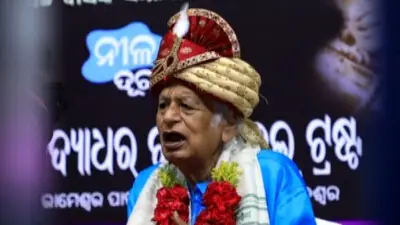Recommended Stories
For the suave, educated, well-bred city dweller, raised to appreciate and relish the ‘finer things’ of life, the mere thought of someone eating rats may make him/her want to puke. But it is staple ‘diet’ for thousands of Musahar (rat-catcher) families in Bihar and Uttar Pradesh, not because they love its taste but because they don’t have anything better to eat.
The front page report titled “In UP, rat-eating Musahars battle starvation, death” published in The Times of India today was heart-rending. It speaks of death stalking villages inhabited by Mushars, a Mahadalit community, in Kushinagar district of eastern Uttar Pradesh. Some of the passages in the story make a mockery of India’s claim to Superpower status and force us to seethe in righteous rage and indignation. Describing the crowd outside the home of Sonwa Devi in the Musahar slum of Jungle Khirki village, who has just lost her two sons aged 16 and 22 to starvation, the report says; “They were there to marvel at what for them was an unusual sight: a stack of food grain inside the unlit, damp room. One of them giggled that Sonwa Devi was a ‘lucky’ woman.” For those wondering how her sons died of starvation despite the stack of food graisn in her home, here is the hard, unpalatable truth. The grains, as it always happens in such cases, arrived only after the deaths! It was the same story in case of Virendra, whose wife had to die before his starving family could lay its hands on some grains.
Another passage in the story was particularly disturbing. “Next door in Samara Hardo village, tiny Arjun and other Musahar children don’t go to school. The whole day they spend looking for rats. As soon as they catch a couple, they roast and eat the rodents. On days that they catch more, they bring the ‘food’ home. That’s dinner: and breakfast the next morning too.” So much for our concern for the ‘future of the nation’!
The irony was the series of deaths due to starvation in Kushinagar came in September when the country was celebrating National Nutrition Month to mark India’s ‘fight’ against malnutrition. If this is how we ‘fight’ malnutrition, then even God can’t help us!!
While the deaths were disturbing in themselves, what made it worse was the response of the district administration and the UP government. Following the template perfected by babudom across the country, both rubbished the allegation that the deaths of Sonwa Devi’s were caused by starvation and sought to pass them as deaths due to ‘cardio-respiratory failure, pulmonary tuberculosis and poliomyeletis’, hoping that these quaint sounding medical terms would help bury the truth. And they would have succeeded in their design too, but for a courageous TB officer, Rakesh Kumar, who called the administration’s bluff and said senior officials had warned him against revealing the truth.
Reading the sequence of events, I was struck by the uncanny resemblance of the deaths of Musahars in UP with the death of 22 people in Kashipur block of Rayagada district in Odisha after consuming fermented mango kernel gruel in 2001. As in the case of Kushinagar, grains arrived at the homes of the tribals only after someone in the family died. Like its counterpart in Kushinagar, the Rayagada district administration too sought to pass the deaths off as caused by disease. Like Kushinagar again, the tribals had ration cards but were too poor to buy even the subsidized grains. If the Musahars of Kushinagar sold their quota of grains to buy medicines and other essentials, the tribals of Kashipur had mortgaged them to feed themselves. In both cases, an attempt was made by the powers that be to attribute the deaths to the food habits of the community rather than lack of food. In both cases, the viscera ‘proved’ they did not die sue to starvation since there were food particles found in their stomach!
It has been 17 years since the starvation deaths in Kashipur. But things have clearly not changed for the poorest of poor in the ‘world’s third richest country’, whether they live in a remote tribal district of Odisha or a district in faraway UP.
(DISCLAIMER: This is an opinion piece. The views expressed are author’s own and have nothing to do with OTV’s charter or views. OTV does not assume any responsibility or liability for the same)













